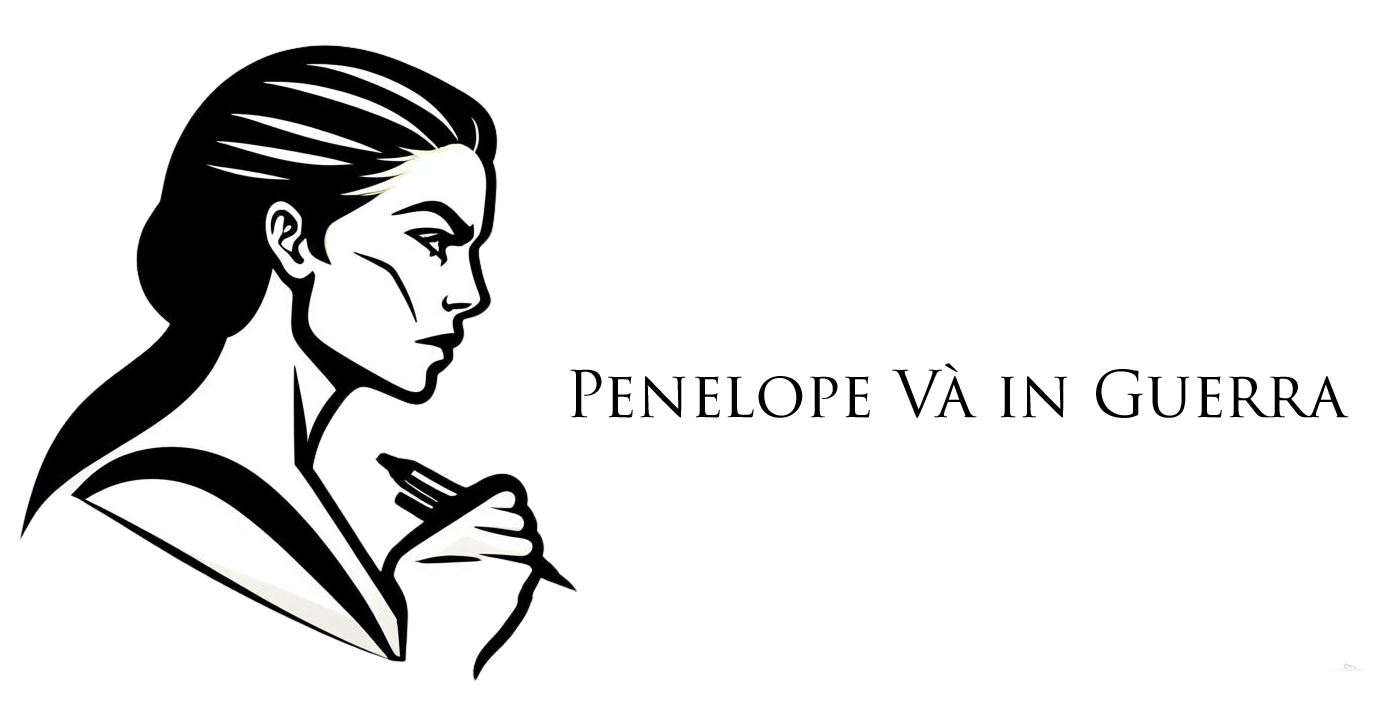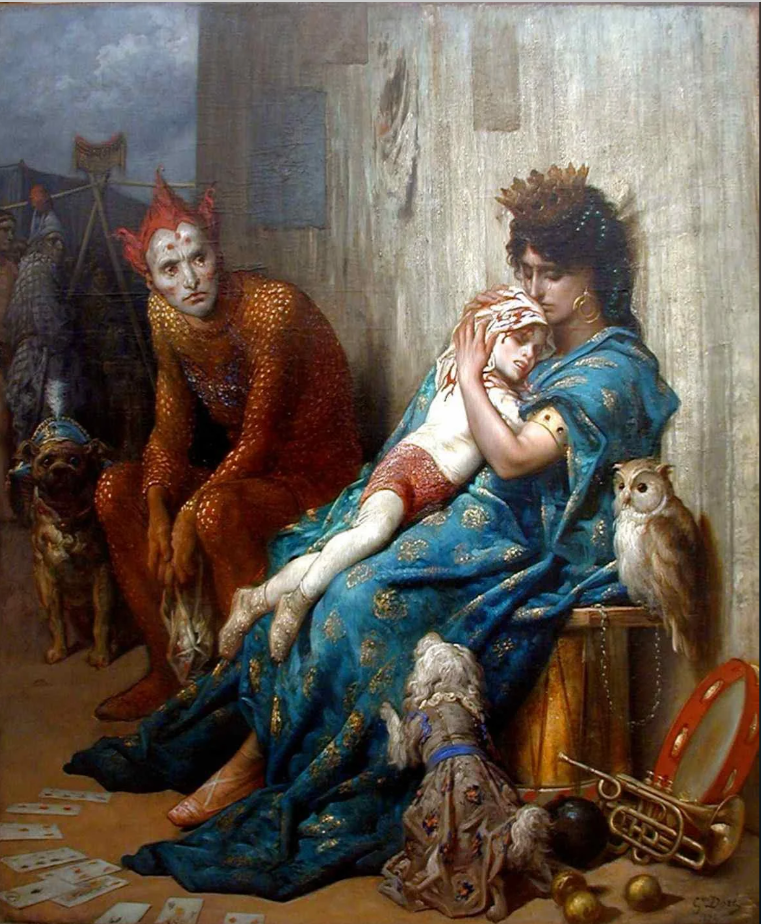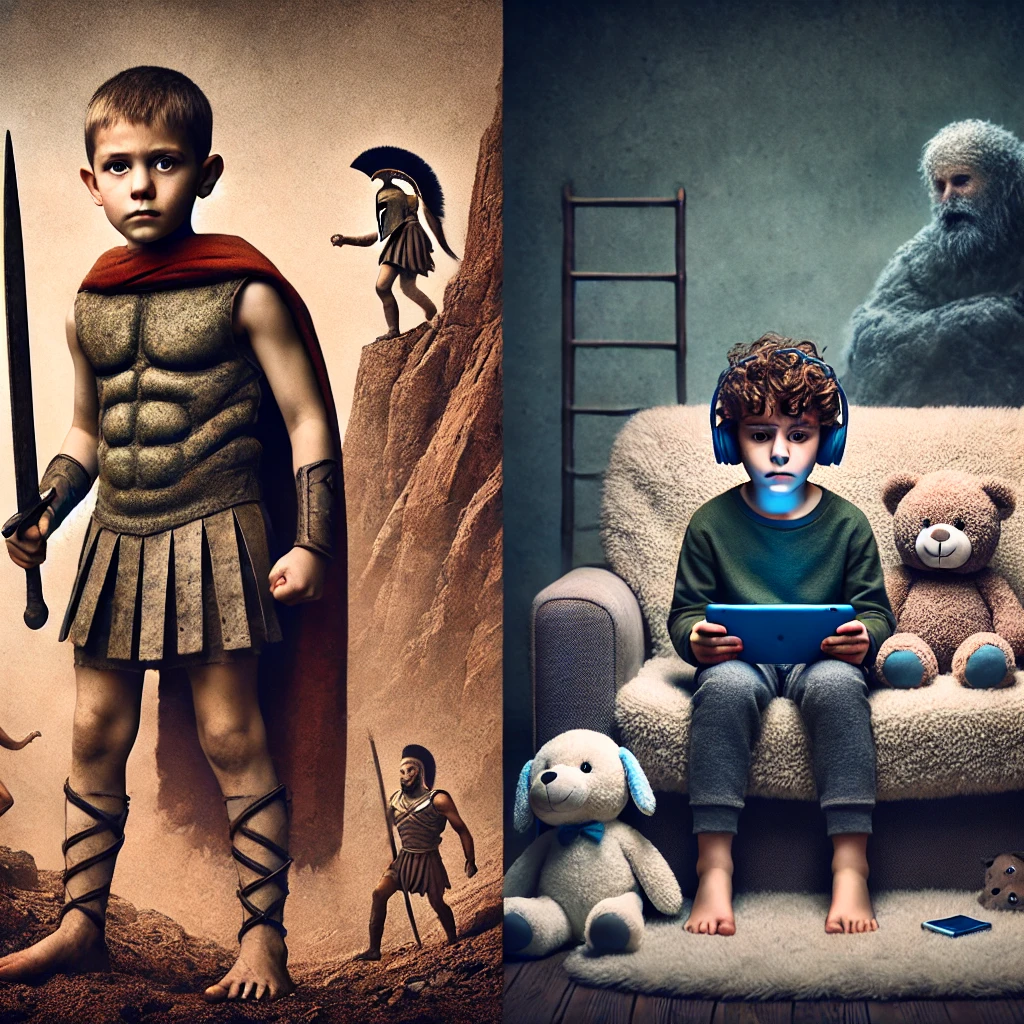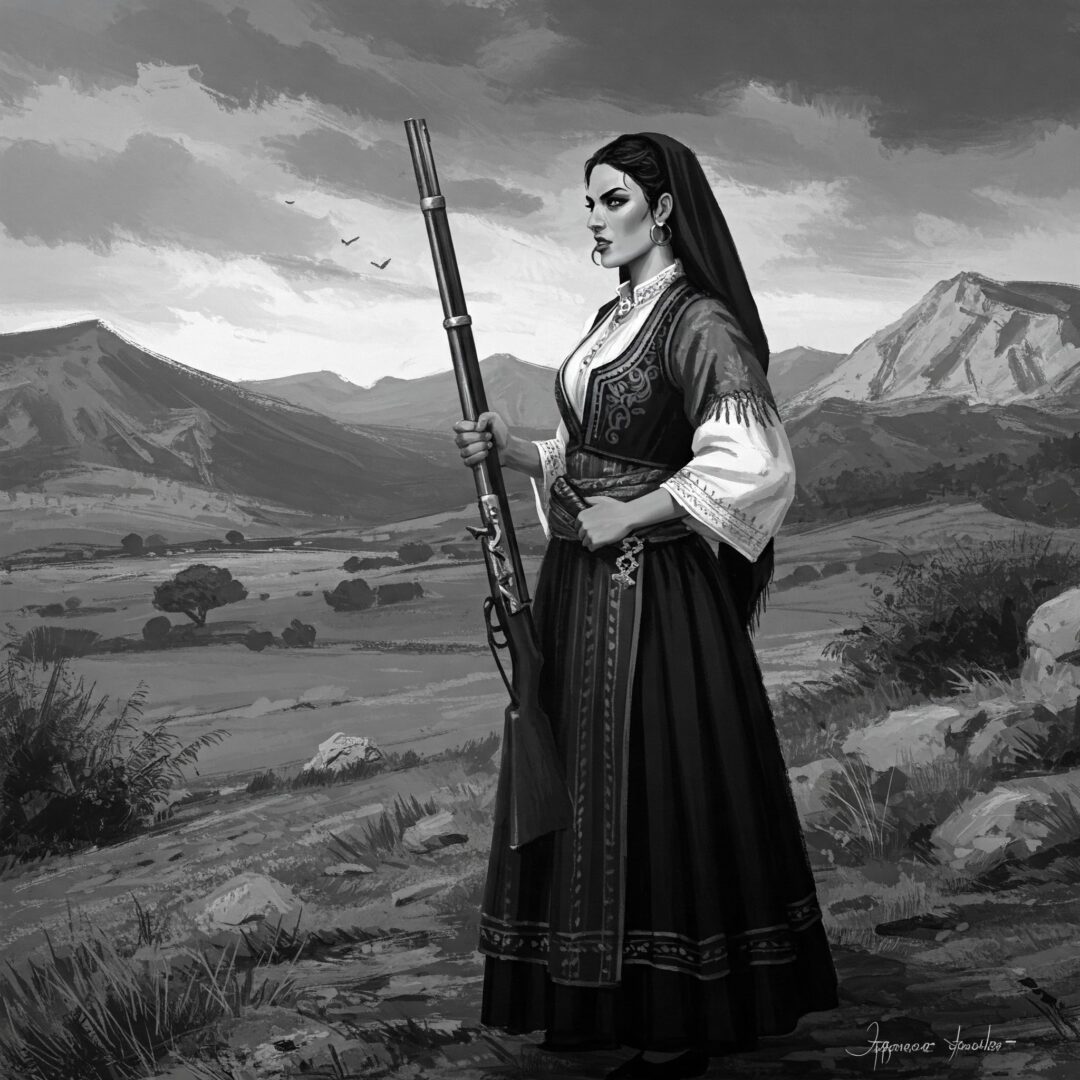In 1874, Gustave Doré painted an incredible piece called Les Saltimbanques, which depicts a family of street acrobats. During that period, it was common to see street performers entertaining the public with very dangerous shows. In this painting, Doré shows us what lies behind the scenes of appearances: a child, seriously injured during a performance, is bleeding profusely while being held in his mother’s arms. The father, also dressed as a circus artist, watches the scene helplessly, with tears in his eyes.
When I first saw the painting, however, without knowing its “official” interpretation, I instinctively gave it a very different, metaphorical meaning, probably one that goes beyond the original intent of the painter. I had an immediate connection with the painting, and once again, art demonstrated its power. Art that speaks many languages through the same mouth.
I saw a toxic family situation, one that is very common but no one dares to talk about because family is sacred.
I saw two parents who, as often happens, use their child as a trophy to redeem their frustration, personal pride, and unfulfilled life. Two parents who don’t love their child.
I saw a child bleeding because he is wounded in his soul, a child who “must succeed,” who “must shine” to make the family appear a certain way in the eyes of others.
I saw a father, dressed as a clown, with a blank stare, neither affectionate nor angry, but just lost: the gaze of a parent who needs his child’s success to feel worth something, unable to see the child for who he truly is, but only for what he could become.
Then, I saw a mother, the only one who shows empathy for her child. She holds him tenderly, but symbolically, still wearing her crown and regal attire, she is powerless. She cannot take her child away from the role that has been assigned to him since birth: the role of a symbol.
I saw the child’s perpetual suffering, which remains when the instruments of appearance no longer play, thrown into the corner of the scene. A child who, even as an adult, will not love himself for who he is, but for what he manages to show.
The circus is a metaphor for a society that judges everything based on appearance. The family, enslaved by it, is forced to console a child who never asked to be born but is made to suffer and perform constantly to be accepted by those who should simply love him because he exists.
The owl, usually a symbol of wisdom, is chained and seems to stare blankly into the void, almost as if it is out of place. Perhaps it represents the sad and clear-eyed view of reality.
Think about the pain you cause your child when you choose for them something that makes you proud, rather than what makes them happy: when you prefer them to become a lawyer instead of an artist, an engineer instead of a janitor, when you prefer them to be heterosexual rather than homosexual, when you impose your ideal based on appearance instead of accepting them for who they are, or when you manipulate their choices to make yourself proud, instead of letting them grow freely into their authenticity.



